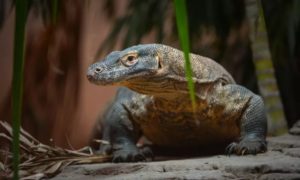Did you know that some animals, like snakes, komodo dragons, sharks, and even turkeys, can reproduce without mating? It’s true! These creatures have the remarkable ability to reproduce asexually through a process called parthenogenesis.
The Mystery of Parthenogenesis:
Parthenogenesis is a form of asexual reproduction where a female organism can produce offspring without needing a male. The process involves the development of an egg into an embryo without fertilization by a sperm. This means that the offspring are genetically identical to the mother, as they inherit all of their DNA from her.
Why Parthenogenesis?
While most animals rely on sexual reproduction, parthenogenesis can offer certain advantages in specific circumstances. For example:
• Survival in Isolation: In environments where finding a mate is difficult or impossible, like for some species of snakes or sharks living in remote areas, parthenogenesis allows them to reproduce and ensure the survival of their lineage.
• Rapid Population Growth: Some species, like komodo dragons, can use parthenogenesis to quickly increase their population size, especially in cases where food is plentiful.
• Adapting to New Environments: Some researchers speculate that parthenogenesis might help animals adapt to new environments, as they don’t need to rely on finding a mate with compatible genes.
Species That Exhibit Parthenogenesis:
Parthenogenesis is not limited to a few specific species. It has been observed in a surprisingly wide range of animals, including:
• Snakes: Some species of snakes, like the boa constrictor and the python, have been known to reproduce asexually.
• Komodo Dragons: These large lizards are capable of producing offspring through parthenogenesis.
• Sharks: Several species of sharks, including the hammerhead and the zebra shark, have been found to reproduce asexually in captivity.
• Turkeys: While less common, some turkey species have also been observed exhibiting parthenogenesis.
Unraveling the Mysteries:
Parthenogenesis continues to fascinate scientists, as they explore the genetic mechanisms behind this remarkable phenomenon. Researchers are studying the evolution of parthenogenesis and its implications for biodiversity and the survival of species in challenging environments.
The Bottom Line:
The discovery of parthenogenesis in animals demonstrates the amazing diversity and adaptability of life on Earth. It challenges our understanding of reproduction and highlights the fascinating ways in which nature has evolved solutions for survival and continuity.

 Pazionmedia.com Pazion Media l Latest News l Politics l Sports l Entertainment
Pazionmedia.com Pazion Media l Latest News l Politics l Sports l Entertainment



